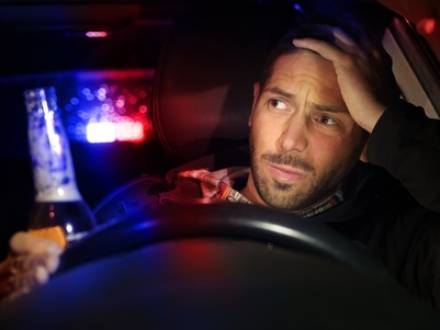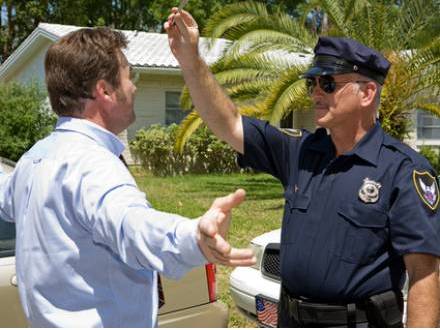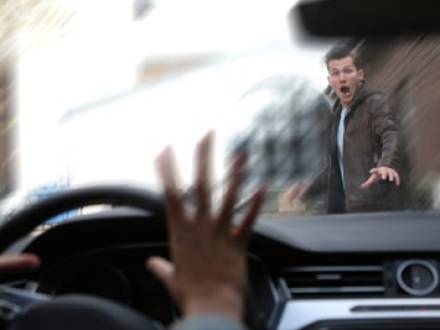Recent Blog Posts
DUI Collateral Consequences Can Be as Bad as the Sentence
 If you are facing DUI charges in California, you should take those charges very seriously. Not only could you face penalties imposed by the court in the event of a guilty verdict, but you may also face a wide range of collateral consequences that can potentially last for several years.
If you are facing DUI charges in California, you should take those charges very seriously. Not only could you face penalties imposed by the court in the event of a guilty verdict, but you may also face a wide range of collateral consequences that can potentially last for several years.
These collateral consequences often surprise people, even more than the judicial penalties. You should not face DUI charges alone. An experienced Sonoma, CA DUI lawyer will build a solid defense on your behalf after comprehensively reviewing the evidence.
What Court Penalties Can You Expect for a First-Time DUI in California?
A first-offense DUI in the state is a misdemeanor, with potential punishments that include three to five years of probation, $390 to $1,000 in fines and fees, a six-month driver’s license suspension, installation of an ignition interlock device, DUI school, and, depending on the county, a short jail sentence (up to six months, depending on the county), or a work release. The defendant may also be sentenced to attend a victim impact panel.
How Can a Wet Reckless Plea Impact a CDL Driver in California?
 Californians with a commercial driver’s license (CDL) in California face especially serious consequences for driving under the influence of drugs or alcohol (DUI). Since their livelihood typically depends on their ability to drive, a DUI can be a major setback. A "wet reckless" plea can be a better alternative to a DUI for non-commercial drivers, but it still presents CDL holders with unique risks for their employment. For more information about your options, speak with a qualified California criminal defense attorney who has helped other clients facing these charges.
Californians with a commercial driver’s license (CDL) in California face especially serious consequences for driving under the influence of drugs or alcohol (DUI). Since their livelihood typically depends on their ability to drive, a DUI can be a major setback. A "wet reckless" plea can be a better alternative to a DUI for non-commercial drivers, but it still presents CDL holders with unique risks for their employment. For more information about your options, speak with a qualified California criminal defense attorney who has helped other clients facing these charges.
What Is a Wet Reckless?
"Wet reckless" is a relatively strange-sounding term that refers to reduced charges that acknowledge alcohol involvement without the full penalties of a DUI conviction. A wet reckless charge can typically carry lighter penalties, although CDL holders cannot assume it will give them a safe outcome without understanding its implications for their commercial driving career.
Will I Lose My CDL After a Second DUI?
 In California, even one DUI can be serious for CDL holders. A first DUI usually means that your CDL - and likely your regular driver’s license - will be suspended for at least one year. If you get convicted of a second DUI, you will lose your CDL permanently. A second DUI automatically results in a lifetime suspension. Losing your CDL could be a major financial blow to you and your family. If you have always been a truck driver, you may not have the education or trade skills to get a different job with similar pay right away. If truck driving is already a second career you took up well into adulthood, you might have an even harder time changing careers at this stage or finding a part-time retirement job that offers the same pay level. If you are a CDL driver facing a second DUI, it is extremely important to fight back. If your San Francisco, CA CDL DUI lawyer is able to have your charges reduced or dismissed or secure an acquittal at trial, you may be able to keep your license and your career.
In California, even one DUI can be serious for CDL holders. A first DUI usually means that your CDL - and likely your regular driver’s license - will be suspended for at least one year. If you get convicted of a second DUI, you will lose your CDL permanently. A second DUI automatically results in a lifetime suspension. Losing your CDL could be a major financial blow to you and your family. If you have always been a truck driver, you may not have the education or trade skills to get a different job with similar pay right away. If truck driving is already a second career you took up well into adulthood, you might have an even harder time changing careers at this stage or finding a part-time retirement job that offers the same pay level. If you are a CDL driver facing a second DUI, it is extremely important to fight back. If your San Francisco, CA CDL DUI lawyer is able to have your charges reduced or dismissed or secure an acquittal at trial, you may be able to keep your license and your career.
CDL Medical Revocation and Aging Drivers
 Most people will find that it gets harder to keep working as they age. No matter what line of work you are in, the normal effects of aging will make carrying out your job duties harder at a certain point. If you are a CDL driver, you might eventually face a medical revocation if it becomes apparent that your ability to safely operate a semi-truck is suffering. CDL drivers are not alone in experiencing this - drivers who hold ordinary licenses can also experience a loss of driving privileges when they begin to suffer significant age-related impairments. However, CDL drivers are held to a much higher standard than others. If you are facing a mental or physical health CDL revocation hearing, you should be represented by an experienced San Francisco, CA CDL holders’ attorney.
Most people will find that it gets harder to keep working as they age. No matter what line of work you are in, the normal effects of aging will make carrying out your job duties harder at a certain point. If you are a CDL driver, you might eventually face a medical revocation if it becomes apparent that your ability to safely operate a semi-truck is suffering. CDL drivers are not alone in experiencing this - drivers who hold ordinary licenses can also experience a loss of driving privileges when they begin to suffer significant age-related impairments. However, CDL drivers are held to a much higher standard than others. If you are facing a mental or physical health CDL revocation hearing, you should be represented by an experienced San Francisco, CA CDL holders’ attorney.
What Happens if I Get a DUI While Visiting California?
 Hundreds of thousands of tourists flock to San Francisco each year, especially in the wintertime. For people who live in the northern states, San Francisco’s sunny, stable climate offers a nice break. Being near Napa Valley and wine country is a big draw for many. However, it is very easy for visitors to spend a day tasting wines and not realize they have become intoxicated and should not drive. This can lead to out-of-state DUI charges. It might be tempting to just go home and ignore your DUI charges after you are released from jail. However, this could lead to additional charges. You will need to make sure that you address your charges. A San Francisco, CA out-of-state DUI lawyer who is experienced in working with people who do not live locally can help you.
Hundreds of thousands of tourists flock to San Francisco each year, especially in the wintertime. For people who live in the northern states, San Francisco’s sunny, stable climate offers a nice break. Being near Napa Valley and wine country is a big draw for many. However, it is very easy for visitors to spend a day tasting wines and not realize they have become intoxicated and should not drive. This can lead to out-of-state DUI charges. It might be tempting to just go home and ignore your DUI charges after you are released from jail. However, this could lead to additional charges. You will need to make sure that you address your charges. A San Francisco, CA out-of-state DUI lawyer who is experienced in working with people who do not live locally can help you.
Can I Refuse a Field Sobriety Test in California?
 When a law enforcement officer stops a vehicle and suspects the driver of driving under the influence (DUI), he or she may ask the driver to submit to a field sobriety test. A field sobriety test is a roadside examination of the driver’s cognitive and motor functions with the aim of assessing whether he or she is impaired. Field sobriety tests are considered subjective, meaning the results are based on the police officer’s judgment and not on an impartial machine.
When a law enforcement officer stops a vehicle and suspects the driver of driving under the influence (DUI), he or she may ask the driver to submit to a field sobriety test. A field sobriety test is a roadside examination of the driver’s cognitive and motor functions with the aim of assessing whether he or she is impaired. Field sobriety tests are considered subjective, meaning the results are based on the police officer’s judgment and not on an impartial machine.
If the officer feels a driver has failed a field sobriety test, he or she can reasonably assume the driver is impaired and make a lawful arrest. Field sobriety tests are not mandatory, but it is important to understand what can happen if you refuse them. For more details and to know your rights if you are pulled over for a DUI, speak with a California DUI defense attorney.
What Is a Field Sobriety Test?
When California police officers want to examine a driver for impairment at a traffic stop, they usually use the Standardized Field Sobriety Test (SFST). The SFST is a series of three tests that include:
What Are the Legal Consequences of a DUI Death in California?
 Driving under the influence (DUI) is one of the most common crimes in California. Last year, there were a reported 125,000 DUI-related arrests, averaging about 340 a day. There were over 200,000 crashes and more than 4,000 deaths from DUI collisions.
Driving under the influence (DUI) is one of the most common crimes in California. Last year, there were a reported 125,000 DUI-related arrests, averaging about 340 a day. There were over 200,000 crashes and more than 4,000 deaths from DUI collisions.
A DUI offense is a serious crime in California and can carry heavy fines and jail time, in addition to driver’s license suspension or revocation. A DUI that causes a death, however, is treated even more harshly. The penalties for a DUI death depend on whether the offense is charged as vehicular manslaughter or second-degree murder. If you are facing charges related to a DUI, contact a California DUI defense attorney.
What Is Vehicular Manslaughter While Intoxicated in California?
Vehicular manslaughter while intoxicated is when a driver kills someone by driving under the influence. It is the most common charge filed in DUI death cases and has two subcategories:
Can My CDL Be Revoked Due to a Medical Condition?
 Operating a commercial vehicle is not the same as driving a passenger car. Someone who drives a school bus, heavy-duty truck, or vehicle weighing over 26,000 pounds may find it more physically and mentally taxing than driving a sedan or SUV. If the driver cannot handle the demands on his or her mind and body, he or she can present a threat to public safety.
Operating a commercial vehicle is not the same as driving a passenger car. Someone who drives a school bus, heavy-duty truck, or vehicle weighing over 26,000 pounds may find it more physically and mentally taxing than driving a sedan or SUV. If the driver cannot handle the demands on his or her mind and body, he or she can present a threat to public safety.
Therefore, there are certain medical requirements for obtaining a commercial driver’s license (CDL). If those requirements are not met, the CDL will likely be denied; or, if a driver develops a medical condition after being issued a CDL, it may be revoked.
This article will discuss the medical requirements for a CDL and how to challenge a denial or revocation. For more details or any questions regarding CDLs, consult a California CDL defense attorney.
What Are the Medical Requirements for a CDL?
The Federal Motor Carrier Safety Administration (FMCSA) has established regulations that deny CDLs to people with certain conditions. These include:
What Are the Legal Defenses for a DUI Charge in California?
 Being charged with driving under the influence (DUI) can be a difficult experience. California imposes some harsh penalties for DUI convictions, including heavy fines, license suspension, and even jail time in some cases. A driver can be charged with a DUI for a variety of substances while driving any one of several types of vehicles.
Being charged with driving under the influence (DUI) can be a difficult experience. California imposes some harsh penalties for DUI convictions, including heavy fines, license suspension, and even jail time in some cases. A driver can be charged with a DUI for a variety of substances while driving any one of several types of vehicles.
If you are facing a DUI charge, it is important to know what legal defenses are available. This article will explore DUI laws and legal defenses, though it is best to hire a California DUI defense attorney if you are facing DUI charges.
DUI Charges in California
In California, driving any kind of motorized vehicle while under the influence of any substance that impacts your ability to drive that vehicle may be considered a DUI. Driving a car, motorcycle, boat, or electric scooter while under the influence, for example, can be enough for a DUI charge. California law even has laws about riding bicycles under the influence. Anyone between 13 and 20 years old who rides a bike while impaired by alcohol or drugs may have his or her license delayed or suspended for a year when he or she is eligible to drive.
How Can a DUI Conviction Affect Your Ability to Get a CDL License?
 In what must surely define the word "irony," a truck driver who just happened to be hauling more than 43,000 pounds of beer was recently charged with DUI in Chico, CA. In California—and every state except Utah, a commercial vehicle driver may not have a BAC of more than 0.04 percent. If this happens to be a CDL driver’s first DUI, they might get off "easy" and only lose their CDL license for a year.
In what must surely define the word "irony," a truck driver who just happened to be hauling more than 43,000 pounds of beer was recently charged with DUI in Chico, CA. In California—and every state except Utah, a commercial vehicle driver may not have a BAC of more than 0.04 percent. If this happens to be a CDL driver’s first DUI, they might get off "easy" and only lose their CDL license for a year.
For the person whose job requires a CDL license to make a living, this is anything but an easy penalty, especially when combined with the potential criminal consequences of jail time and an array of fees and fines. For those contemplating getting a CDL license who are unsure whether a prior DUI will affect them, the answer is, "It depends."
Whether you are trying to obtain a first-time CDL license, fighting a DUI to prevent a CDL license loss, or attempting to regain a CDL license following a DUI conviction, having an aggressive San Francisco CDL defense lawyer is essential. A skilled attorney has the knowledge and experience to help achieve the best outcome possible.
 415-729-7300
415-729-7300




